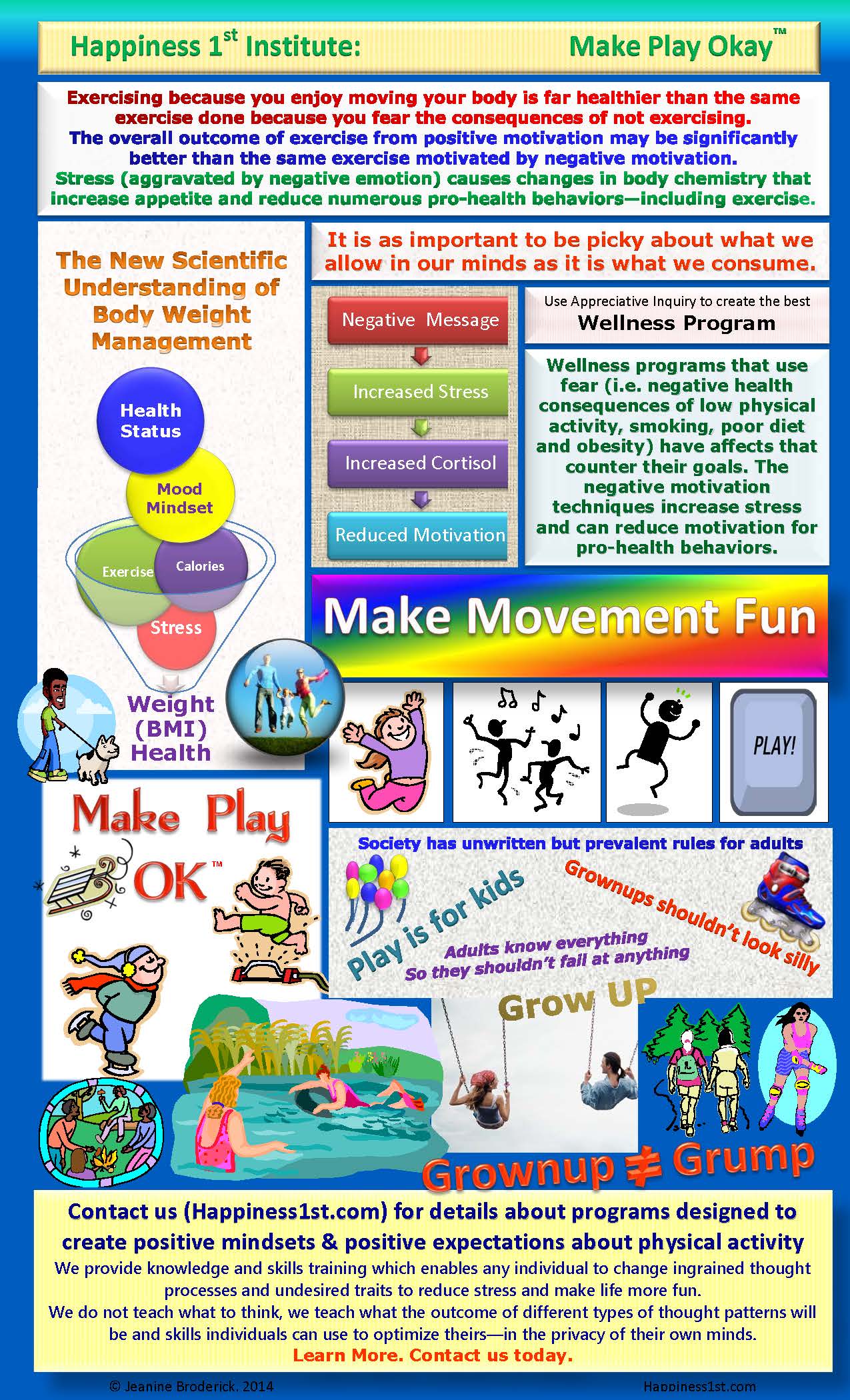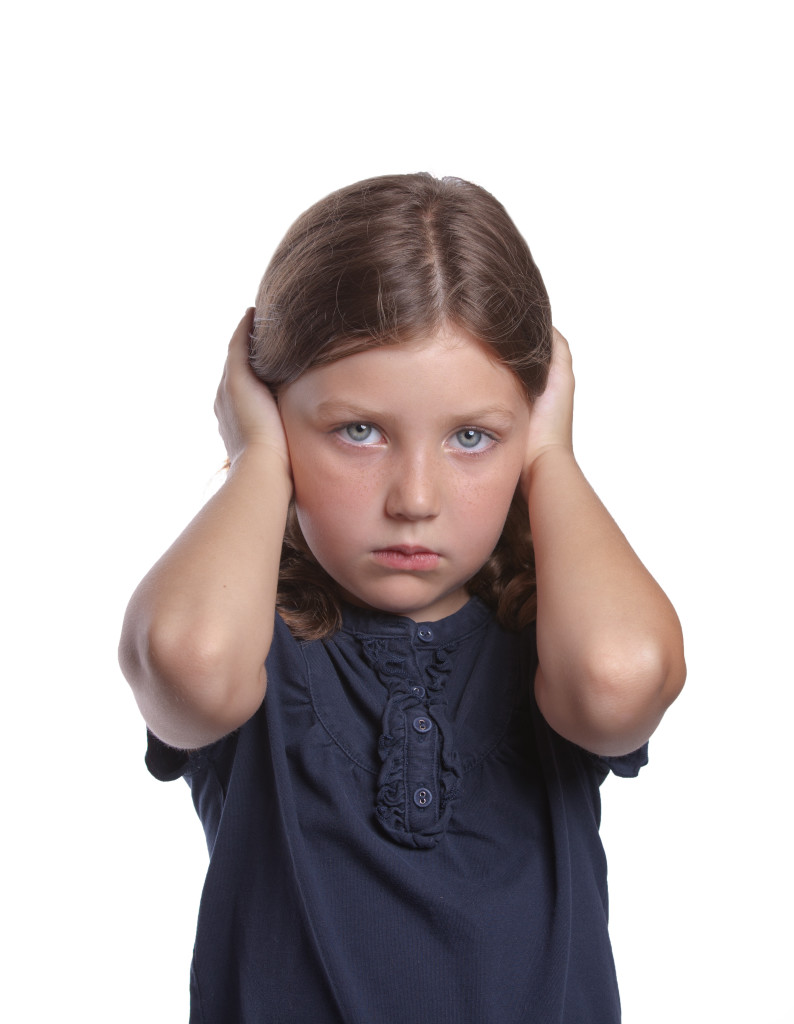You Shouldn’t BE Happy
In Alison Beard‘s article, The Happiness Backlash, in the July-August 2015 issue of Harvard Business Review, it is clear to me that she makes herself more unhappy by believing she should be happy when she isn’t. You shouldn’t be happy, you can be, but it’s not a should.
I wanted to share my comment on her article with you because I think what she is doing is common and it increases misery.
This is a modified version of what I wrote to Alison. Quotes are excerpts from her article:
Your premise that you should be happy is false, “The huge and growing body of happiness literature promises to lift me out of these feelings. But the effect is more like kicking me when I’m down. I know I should be happy.”
“Social scientists tell us that even the simplest of tricks—counting our blessings, meditating for 10 minutes a day, forcing smiles—can push us into a happier state of mind.” The reason their simple tricks are not effective at increasing long-term happiness is that they address symptoms of unpleasant feeling moods, not the root cause.
Your emotional state is not dependent upon your life circumstances and is especially not dependent upon a comparison of your life and those of others–if you have developed psychological flexibility.
Your emotional state is the function of two major things and some less important things that affect it. The first is whether you’re moving toward your unique personal goals. It does not matter what those goals are. They could be to become the richest person on the planet or to become a stay-at-home Mom who has time for bubble baths each or simply someone who has time to get enough sleep or the ability to get enough food for one day, or any other goals that are meaningful to you. If you’re moving in the direction of your goals, you feel much better than if you’re moving away from them. If you’re staying equal distance (not toward or away) your emotion varies by how long you’ve been there and how far you are and whether you believe you’ll ever get there. That brings us to the second major factor–mindset.
Mindset is, to me, the habitual pattern of thoughts that an individual usually uses. Because they are habits, they are the default mode of that individual. Like all habits, they can be changed, but not by simple tricks in a few minutes. Habits of thought include many things, but one that is important to this topic is whether a person tends to react to situations with appreciation, irritation, frustration, anger, envy, despair, etc. Our chronic emotional state is the product of our habits of thought. Two people can have the exact same meal with the exact same waiter at the same table and one can thoroughly enjoy it while the other is frustrated because he finds it lacking in many ways. Both are right, from their personal perspective. We can choose the perspective from which we view any situation. It’s a function of psychological flexibility and a key element of resilience, both of which strongly support good mental health (even following trauma), good relationships, and greater success in all areas of life. In fact, research shows that being resilient before experiencing a trauma (and even learning resilience afterwards) can lead to posttraumatic growth instead of PTSD. It’s not just our veterans that experience PTSD. It can be the result of accidents, crime, and even giving birth.
Other factors come into play. The level of your personal resources such as adequate sleep, nutrition, hydration and whether your body is in pain or ill will affect your emotional state and your behavior.
There are no shoulds in happiness. You are where you are. Should-ing yourself will usually make you feel worse. You can choose what to do from where you are and if being happier is not important to you, leave it to those who want to be happy. It’s not difficult to be happy while pursuing goals that are important to us personally if our habits of thought aren’t sabotaging us.
New research, published in Global Advanced in Health and Medicine informs us that emotions are sensory feedback from a sensory system that even one-celled organisms have, which guide us away from danger and toward self-actualization (Peil, 2014).
Don’t worry if what you’re doing is not the same as what others are doing. They may not want what you want. We are all beautifully unique and life is more fun when we don’t think we have to embrace things others are embracing that don’t appeal to us.
Best wishes to you on having the life you want.
Jeanine Joy teaches, speaks and writes about human thriving. She is an expert in teaching people how to adjust their mindsets in any way they deem helpful in reaching their dreams and goals.
If this helped you, please share so that others may be helped. Thank you.
For more of my articles on LinkedIn and at Happiness 1st Institute.














